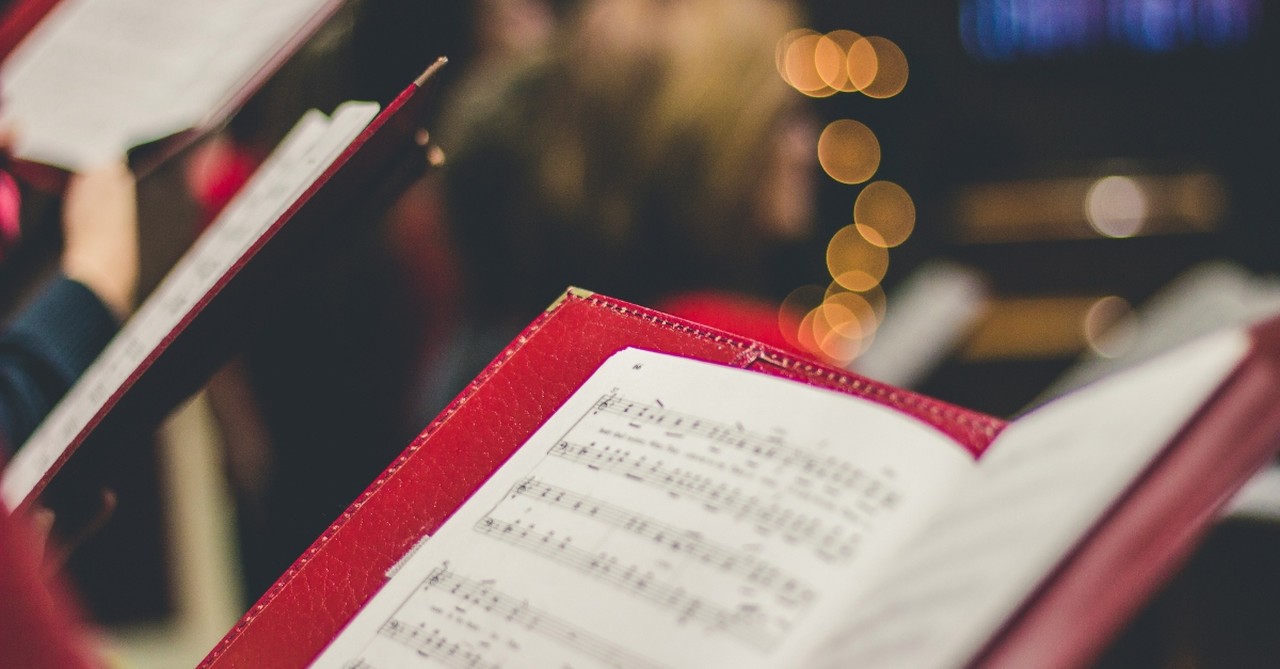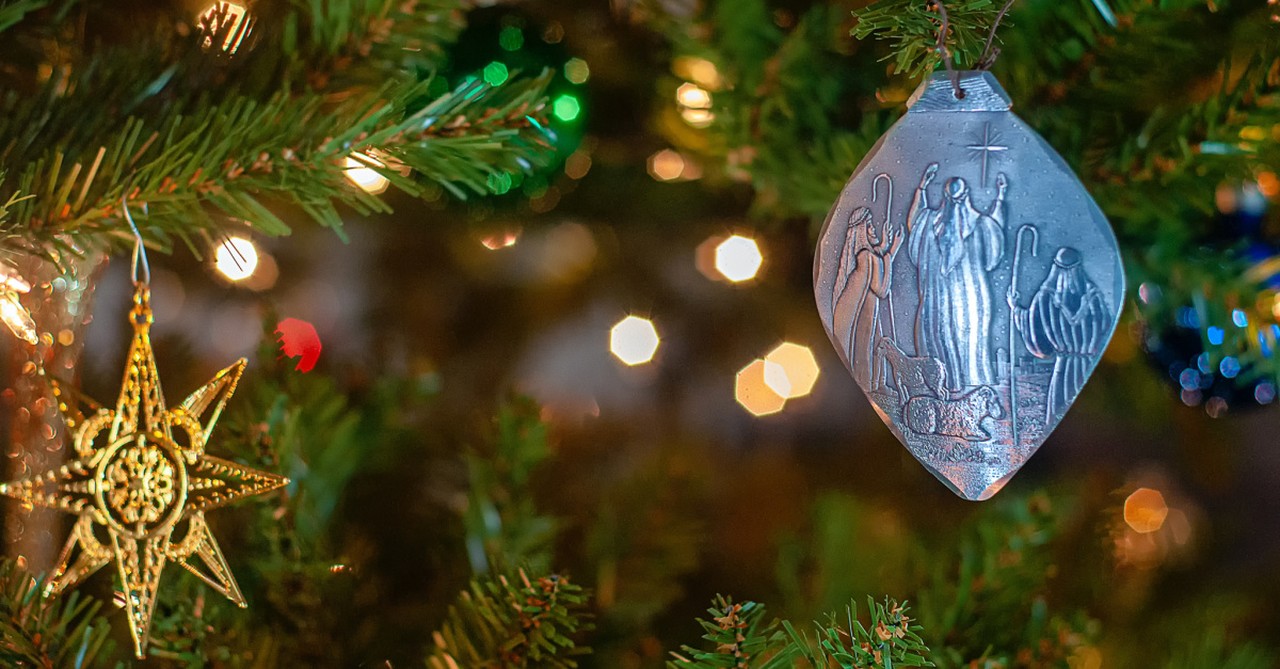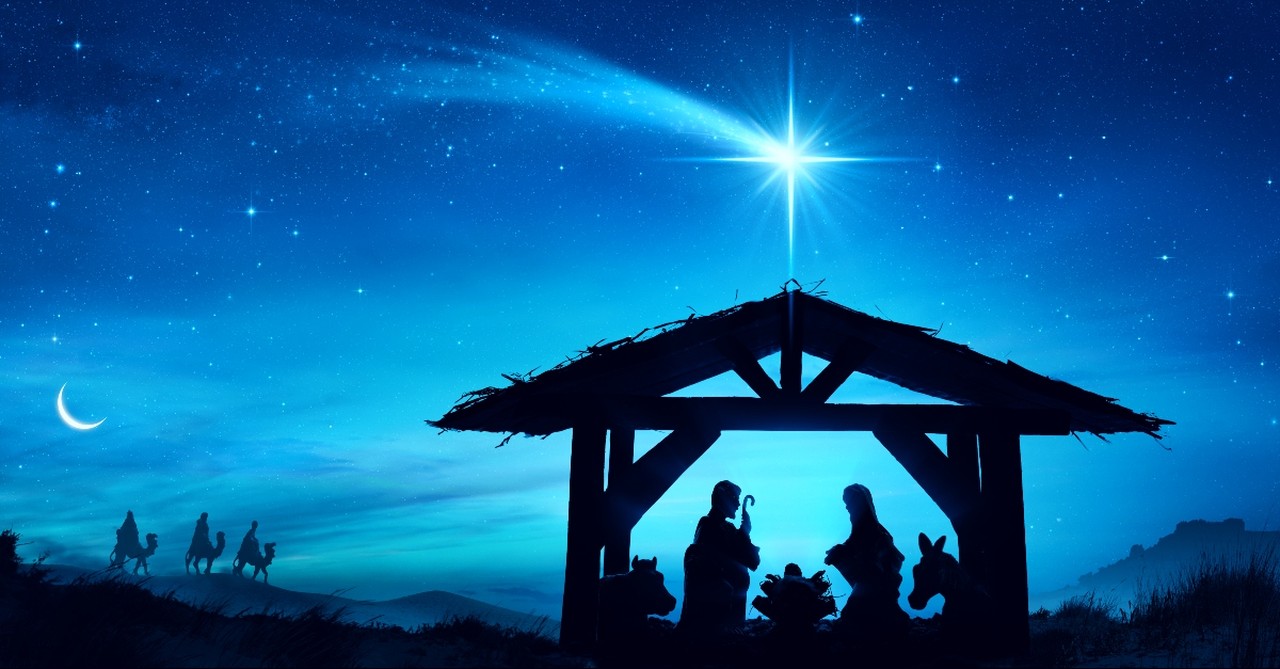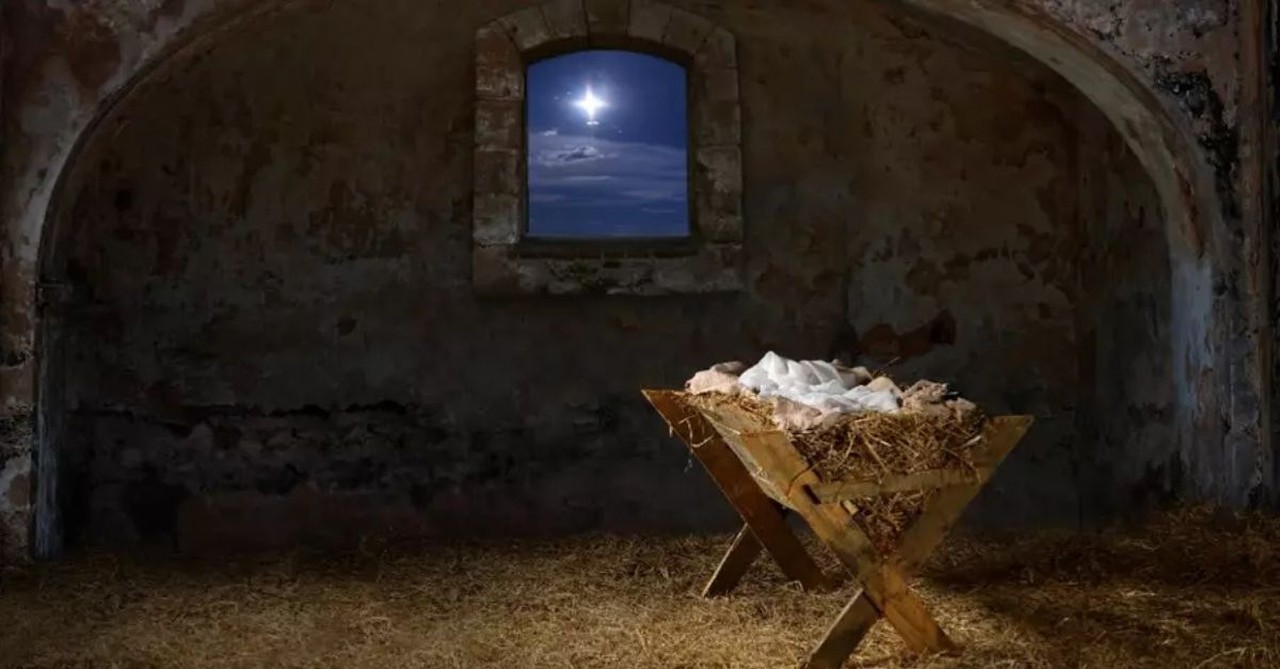12 Most Biblical Christmas Carols

Christmas carols permeate the air throughout November and December. Radio stations and streaming services are quick to create holiday stations which include Christian-themed music. When making your playlist, what are the most biblical Christmas carols you can add?
We offer a small list of twelve favorites from the public domain. May all who sing them bring praise to the Lord.
1. “Hark! The Herald Angels Sing”
Author: Charles Wesley. Altered by George Whitefield
This beloved Christmas carol may be the most theologically ordered hymn in Christendom. Charles Wesley, who wrote over 6,500 hymns (yes, 6,500!) during his life as a Christian, wrote “Hark! The Herald” within a year of his conversion to Christianity.
How theologically full are the lyrics which give meaning to the melody written by Mendelssohn (#51171). Through its three stanzas, which describe Jesus Christ, Wesley presents the gospel. His friend, George Whitefield, made an alteration to the second verse when he replaced, “Hark how all the Welkin rings” to “Glory to the Newborn King.” It was a change which affected even Wesley, for in a later hymnal, Whitefield’s verse replaced his own.
Sample Lyrics:
Hark! the herald angels sing,
"Glory to the newborn King:
peace on earth, and mercy mild,
God and sinners reconciled!"
Joyful, all ye nations, rise,
join the triumph of the skies;
with th'angelic hosts proclaim,
"Christ is born in Bethlehem!"
Scripture References:
No less than forty Scripture passages are indicated in this Christmas carol. The Gospels represented include:
Matthew 1:18-25
Matthew 2:1-2, 13-14
Matthew 20:28
Luke 1:33-35, 77-79
Luke 2
Luke 4: 4:18
Luke 24:46-51
John 1:1-26
John 3:1-17
John 8:12
John 10:10
John 11:25-26
Photo credit: Unsplash/David Beale
2. “O Holy Night”

2. “O Holy Night”
SLIDE 1 OF 6
Lyrics by Placide Cappeau, Anonymous (melody)
Commissioned by a parish priest, Placide Cappeau, a devout atheist and anti-cleric wrote the poem, “O Holy Night” after researching the Gospel of Luke. An opera singer loved the poem and she asked an unknown Jewish musician to write a melody for the poem.
In 1906 Reginald Fessenden, a chemist who previously worked with Thomas Edison, was the first to speak words into a microphone. He quoted from the book of Luke and upon finishing the Scripture reading, Reginald played “O Holy Night” on his violin, the first song ever played over the airwaves.
Only God could orchestrate such a story.
Sample Lyrics
O holy night! the stars are brightly shining;
It is the night of the dear Savior’s birth.
Long lay the world in sin and error pining,
Till He appeared and the soul felt its worth.
A thrill of hope - the weary world rejoices,
For yonder breaks a new and glorious morn!
Fall on your knees! O hear the angel voices!
O night divine, O night when Christ was born!
O night, O holy night, O night divine!
Scripture References
3. “God Rest Ye, Merry Gentlemen!”
Hymnwriters are unknown, traditional English Christmas carol
The hymn first appeared in the fifteenth century and was formally entered into hymnals in the seventeen hundreds. The lyrics reach all who are troubled by life without a Savior, and behold! Christ was born on Christmas Day! Therefore, comfort and joy come to all the weary and heavy laden who put their trust in Christ.
Sample Lyrics
God rest you merry, gentlemen,
let nothing you dismay,
remember Christ our Savior
was born on Christmas Day
to save us all from Satan's pow'r
when we were gone astray
O tidings of comfort and joy,
comfort and joy;
O tidings of comfort and joy
Scripture References
Photo credit: ©Getty Images/Allanswart
4. “Good Christian Men Rejoice”

4. “Good Christian Men Rejoice”
SLIDE 2 OF 6
Lyrics by Heinrich Suso (14th century). Tune: 14th century German tune
This carol was used in the medieval times as part of using hymns to teach Bible stories to lowly folk. In 1853, J. M. Neale, prolific hymn translator, amended the title to, “Good Christian Friends, Rejoice.” The melody for the carol was a traditional folk tune.
Legend has it that Heinrich Suso danced in worship after hearing angels sing the words.
Sample Lyrics
Good Christian men, rejoice,
With heart and soul and voice;
Now ye need not fear the grave:
Peace! Peace! Jesus Christ was born to save!
Calls you one and calls you all,
To gain His everlasting hall.
Christ was born to save!
Christ was born to save!
Scripture References
5. “Silent Night”
Written by Joseph Mohr (1818), Melody by Franz Gruber
In Obendorf, Austria, on December 24th, 1818, Father Joseph Mohr requested an accompaniment from Franz Gruber for a poem he’d written, to be used in the midnight mass.
That night, at St. Nicholas church, two men debuted a new song, thus birthing this beloved Christmas carol.
First written for guitar, an English translation was published in 1859 by New York priest John Freeman Young, a hymn translator by hobby.
Sample Lyrics
Silent night! Holy night!
Shepherds quake at the sight.
Glories stream from heaven afar,
heav'nly hosts sing, “Alleluia!
Christ the Savior is born!
Christ the Savior is born!
Scripture References
Luke 1:35, 68-79
Luke 2:1-20, 30
Photo credit: ©Getty Images/undefinedundefined
6. “Come Thou Long Expected Jesus”

6. “Come Thou Long Expected Jesus”
SLIDE 3 OF 6
Written by Charles Wesley
For many Christians, this hymn signals the beginning of Advent. And it is a prayer of petition, which is different from other Christmas songs which herald Christ’s birth. This one looks ahead to what He will do.
Sample Lyrics
Born thy people to deliver,
born a child and yet a King,
born to reign in us forever,
now thy gracious kingdom bring.
By thine own eternal spirit
rule in all our hearts alone;
by thine all sufficient merit,
raise us to thy glorious throne.
Scripture References
A long list of Scriptural references is attached to this Christmas hymn, including these from the Old Testament:
Psalm 34:4, 17-19
7. “O Come O Come Emmanuel”
Translated by J. M. Neale (1851)
An 8th-century, seven-verse poem is the source of the text for “O Come, O Come, Emmanuel.” During vespers, it was used in a call-and-response manner. The reverse acrostic “ero cras,” meaning “I shall be with you tomorrow,” was created by the original text; this is especially fitting for the Advent season.
Five verses, appearing in a 13th-century metrical version, were translated into English by J.M. Neale in 1851. Each of the five verses elaborates on a name for the Messiah.
"Emmanuel" (Isaiah 7:14, Matthew 1:23) - "God with us"
"Adonai" (Exodus 19:16) - “Lord”
"Branch of Jesse" (Isaiah 11:1) - Jesus’ lineage
"Oriens" (Malachi 4:2, Luke 1:78-79) - “Daystar”
"Key of David" (Isaiah 22:22) - Jesus' lineage, once more
Sample Lyrics
O come, O Branch of Jesse's stem,
unto your own and rescue them!
From depths of hell your people save,
and give them victory o'er the grave
Rejoice! Rejoice! Immanuel
shall come to you, O Israel.
Scripture References
So much of this hymn stems from Isaiah, we will put the list of those passages here:
Isaiah 9:2-7, 17
Isaiah 22:2, 21-23
Isaiah 52:10, 15
Photo credit: Unsplash/Robert Thiemann
8. “Go Tell it on the Mountain”

8. “Go Tell it on the Mountain”
SLIDE 4 OF 6
Anonymous hymnwriter
This beloved Christmas carol was first published in a compilation titled, Folk Song of the American Negro (1907), by John Wesley Work, Jr. The original text was lost, but in his 1940 publication, American Negro Songs and Spirituals, John Wesley Work III credits his uncle, Frederick J. Work, with the song’s newer lyrics. John wrote that he might have composed the tune. John Work III said, “I know he composed the verses.”
John III recalled that when he was a child, the students at Fisk University began singing this before daybreak on Christmas morning, going from building to building. Later, his choral arrangements for the Fisk Jubilee Singers helped popularize the “go and make disciples” spiritual.
Sample Lyrics
Go tell it on the mountain,
over the hills, and ev'rywhere;
go, tell it on the mountain
that Jesus Christ is born.
Scripture References
Listen here (start at 1:30)
9. “O Come, All Ye Faithful”
Written by John Francis Wade; translated by Frederick Oakeley (1841)
What we currently sing at Christmastime is a 19th century carol based on an 18th century hymn. No one is certain, but it appears this carol is a collaborative effort with an attribution given to Mr. Wade.
The second stanza gains much from the Nicene Creed.
Sample Lyrics
Yea, Lord, we greet Thee, born this happy morning;
Jesus, to Thee be all glory giv'n!
Word of the Father, now in flesh appearing!
O come, let us adore Him;
O come, let us adore Him;
O come, let us adore Him, Christ, the Lord!
Scripture References
We’ll reference the epistles and Revelation.
Photo credit: ©Getty Images/rdonar
10. “It Came Upon the Midnight Clear”

10. “It Came Upon the Midnight Clear”
SLIDE 5 OF 6
Written by Edmund H. Sears (1849), Melody by Willis Carol
According to reports, Sears wrote this at the urging of his friend, William Parsons Lunt, a minister in Quincy, Massachusetts. The 1849 Sunday School Christmas celebration was where the hymn received its first performance.
Sample Lyrics
For lo! the days are hastening on,
by prophet seen of old,
when with the ever-circling years
shall come the time foretold
when peace shall over all the earth
its ancient splendors fling,
and the whole world send back the song
which now the angels sing.
Scripture References
Taken from passages throughout the Old and New Testament, we will look at those from the Gospels:
11. “I Heard the Bells on Christmas Day”
Written by Henry Wadsworth Longfellow
Longfellow, known as “America’s Poet,” long suffered the loss of his wife and was distressed by his son’s injury in the Civil War. He was a man in despair for his losses and yet displayed his hope in the fourth stanza.
Sample Lyrics
And in despair I bowed my head:
"There is no peace on earth," I said,
"For hate is strong, and mocks the song
Of peace on earth, good will to men."
Then pealed the bells more loud and deep:
"God is not dead, nor doth He sleep;
The wrong shall fail, the right prevail,
With peace on earth, good will to men.
Scripture References
Photo credit: ©Getty Images/Romolo Tavani
12. “The First Noel”

12. “The First Noel”
SLIDE 6 OF 6
Anonymous hymnwriter
This is an anonymous folk song printed in an 1823 compilation of ancient Christmas songs. Half of the hymnals presented this as The First Nowell, while others used the French rendering, Noël. Both mean “birth.”
Sample Lyrics
The first Noel the angel did say
was to certain poor shepherds in fields as they lay,
in fields where they lay keeping their sheep,
on a cold winter’s night that was so deep.
Noel, Noel, Noel, Noel,
born is the King of Israel.
Scripture Reference from Matthew’s Gospel:
Matthew 1:1-12, 18, 23
Matthew 3:1, 9-11, 13-17
Christmas carols have been sung by the sacred and the profane and still they don’t lose their powerful message. Perhaps the Lord will use the words of each Christmas carol to draw unbelievers to Himself (Romans 10:14-17). We can pray the Lord causes the unsaved to venture into the words of the Bible. And perhaps, God will call them to salvation.
At minimum, encouragement will come to believers as we sing and praise God through these carols. At medium, men and women, boys and girls will be saved. At uttermost, God will be glorified. Hallelujah!
Photo credit: ©Getty Images/ginosphotos

Originally published December 11, 2024.









